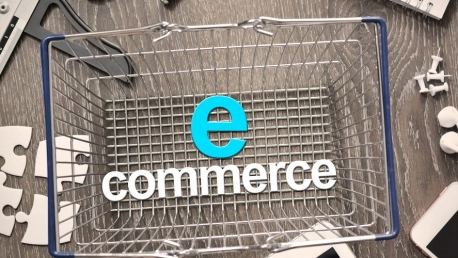Known as the first generation who has grown up with internet access and smart devices, Generation Z is composed of the first digital natives. Gen Z audiences have been exposed to technology and breakthroughs that define our digital age since childhood. This is why they differ from previous generations, who have not had such an intimate experience with technology. Born to be digital, according to some sources, Gen Z consumers are also likely to impact the future of e-Commerce.
Gen Z audiences are individuals born between 1997 and 2015. Based on studies by Salesforce, these buyers are increasingly more realistic than their parents or grandparents, save money and value innovative brands more. Millennials are individuals born between 1981 and 1997. These shoppers are idealistic, likely to spend more on authentic brand experiences, and are driven more by customer loyalty.
These differences influence how people from different generations shop and how retail and online stores design their future E-commerce strategies and tailor their campaigns to their target audience.
The Need for Sustainability in Retail
Sustainability is becoming progressively vital for retailers and online stores everywhere. Studies prove Gen Z buyers value sustainable practices when making their purchase decisions. Their consideration for sustainability is much more significant than millennials and Gen X shoppers. In response, retailers are re-evaluating their sustainability strategies and exploring authentic solutions to appeal to the want and values of Gen Z audiences.
Retailers like Amazon and Zara have already taken the first steps towards more sustainable strategies, with Amazon promising to curb its greenhouse gas emissions to reach net-zero emissions by 2040. Additionally, Amazon founder Jeff Bezos has also vowed to invest $10 billion of his private funds to combat climate change.
According to the same source, Zara has pledged to use only organic, sustainable, or recycled fabrics for all clothing by 2025. The multi-national retail clothing chain plans to shift to zero landfill waste and renewable energy sources for 80% of its distribution centers, offices, and shops.
Saving Money Is Increasingly Important
There is no question that members of all generations resort to saving money, especially during uncertain economic times. However, Gen Z audiences are far more dedicated to saving money. Finder’s Consumer Confidence Index shows that an average Gen Z consumer saves approximately $857 every month, compared to a Millennial who only saves $294. Gen Z shoppers are also likely to have around $10,062 in savings compared to $7,165 for Millennials. The average American saves approximately $462 monthly, proving how Gen Z audiences value saving.
The will to save money makes Gen Z shoppers more likely to buy lower-priced and lower-quality items, at least in less-critical categories. Research shows that Gen Z audiences purchase luxury items, just like Millennials do. Even so, the reasons for making such buying decisions differ. While Millennials are likely to choose brands to show off their social status, Gen Z consumers are more likely to pay more for unique items that fit their wants and needs, McKinsey researchers say. Gen Zers prefer to spend more on items from small, sustainable brands with a reputable social media presence.
Enjoying Multi-Channel Expansion
Gen Z consumers have grown up with global connectivity fueled by social media platforms. As a result, these shoppers favor brands with reputable social media presence. Gen Z audiences enjoy multi-channel expansion in e-Commerce because of this. Retailers and online stores expanding their sales channels to mobile commerce, e-Commerce, email, and other communication channels will have a competitive advantage.
Gen Z consumers require authentic and transparent communication. They appreciate brands that are reliable in all their customer interactions. Consumers in this generation support the brands they can relate to. Millennials are advocates for brands associated with a certain social status, especially luxury brands. Retailers will leverage social media to attract and engage Gen Z audiences while expanding into multi-channel communication.
Retail businesses must prioritize sustainability and invest in sound pricing strategies. These solutions will help retailers stay ahead of the values of Gen Z shoppers, making it easier to drive confident purchasing decisions and develop brand loyalty.









